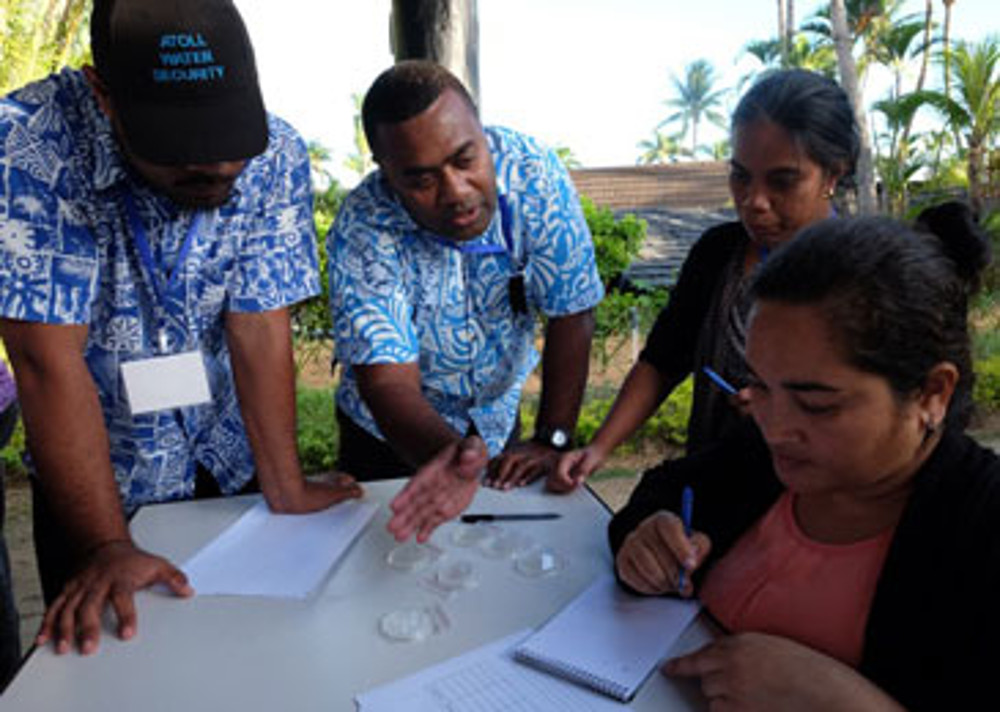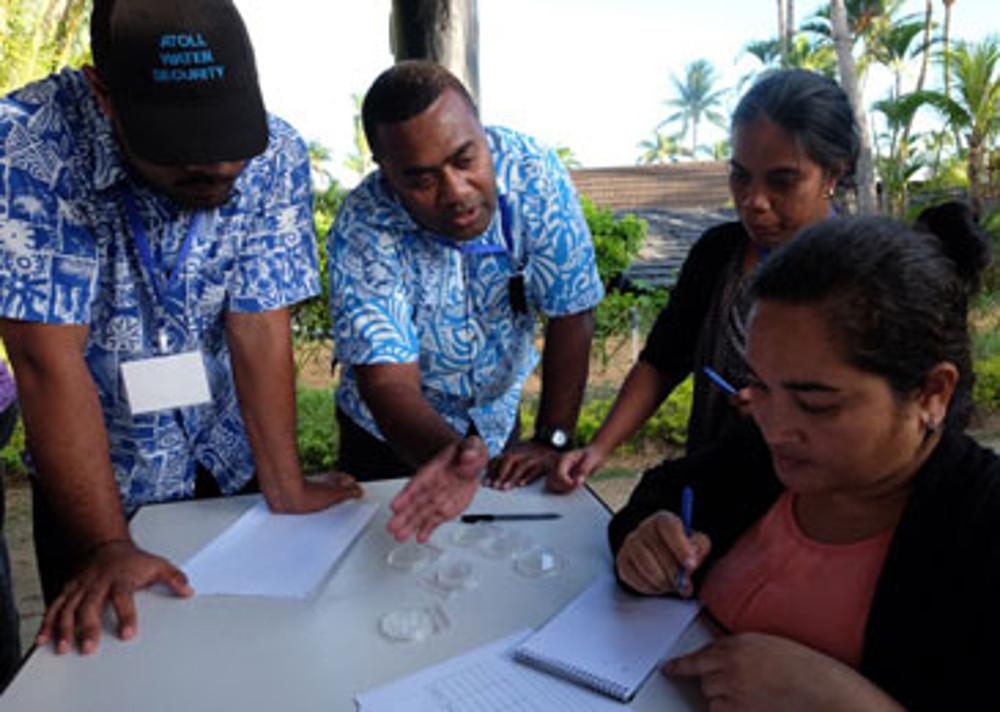 Representatives of five Pacific atoll countries came together in Nadi this week to explore ways to tackle the common water security issues facing island communities.
Representatives of five Pacific atoll countries came together in Nadi this week to explore ways to tackle the common water security issues facing island communities.
With the support of the Pacific Community (SPC) and New Zealand Aid Programme, participants from Cook Islands, Kiribati, Marshall Islands, Tokelau and Tuvalu undertook joint training in the effective monitoring, assessment and management of atoll water security.
The training was conducted alongside the first Steering Committee meeting for the New Zealand funded project, Strengthening Water Security of Vulnerable Island States.
This five year sub-regional project is supporting atoll countries to build the skills, systems and basic infrastructure to better anticipate, respond to, and withstand the impacts of drought.
Unlike projects that work through a single sector, the project brings together personnel from three sectors intimately involved in the maintenance of water security - disaster management, water, and weather services.
Country representatives from each of these sectors took part in a range of practical training exercises designed to simulate the real challenges faced by national agencies when responding to the needs of atoll communities affected by drought. Exercises included testing the safety of drinking water and analysing rainfall data to assess the risk of drought.
A simulation exercise was also held in which participants gathered critical water resource information from drought-affected communities and analysed the data to inform effective drought responses.
Participants also assessed the effectiveness of “SODIS”, a simple solar disinfection approach pioneered in the Pacific by Kiribati with the assistance of SPC and partners.
National Disaster Management Officer for Tuvalu, Sumeo Silu, highlighted the benefit of sub-regional collaboration in tackling water security issues.
“We can learn a lot from our atoll neighbours who are facing similar issues to us,” Mr Sumeo said.
“The capacity and the ideas really do exist in these countries, and programmes such as this allow us to share new solutions and improve upon existing approaches,” he added.
For Tokelau Project Officer, Jewel Toloa, the week’s exercises demonstrated the benefit of countries and sectors coming together to tackle real-world problems.
“It’s been a really good experience, not only as the first regional water security initiative for Tokelau to engage in, but also in really understanding the value of proactive action,” Ms Toloa said.
“The practical activities were a good thing for all of us as we needed to demonstrate how it’s done in an environment very close to what actually happens on the ground.”
The Deputy Director of the Republic of Marshall Islands Weather Service, Lee Jacklick, acknowledged the benefit of knowledge sharing between countries and regional organisations such as SPC.
“The important thing coming out of this workshop is the understanding we now have on where our partners are in regard to water security,” Mr Jacklick said.
“We can tap into this wealth and it really does bring a broader understanding and a set of new tools to address the issues.”
The workshop was held in Nadi from 18-21 July.
Media contacts:
Dave Hebblethwaite, SPC Water Governance Coordinator, Water & Sanitation Programme, [email protected] or +679 9983059
Uatea Salesa, SPC Project Manager, Water and Sanitation Programme, [email protected] or +679 9983059
Rhonda Robinson, SPC Deputy Director, Water and Sanitation Programme, [email protected] or +679 9934770
Background information:
The project, Strengthening Water Security Vulnerable Island States, is supported by the New Zealand Ministry of Foreign Affairs and Trade and is being implemented by the Water and Sanitation Programme of the Pacific Community in the Cook Islands, Kiribati, Republic of the Marshall Islands, Tokelau and Tuvalu. The five-year, $5million NZD project is supporting atoll countries to build the skills, systems and basic infrastructure to better anticipate, respond to, and withstand the impacts of drought.
